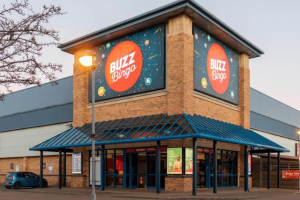Liverpool’s LEP set to reshape strategy

LIVERPOOL City Region’s Local Enterprise Partnership (LCRLEP) is set to unveil a new strategic plan for the area’s economy which is set to broaden the scope of its activities.
The organisation, which inherited four priority areas from its precursor, The Mersey Partnership – the superport, low-carbon, the visitor economy and the knowledge economy – will add two new economic priorities for economic growth when publishing a new strategic plan at a stakeholder event on July 9. according to chairman Robert Hough.
Mr Hough’s appointment was only formally announced two months ago when LCRLEP finally came into being in March – around 12 months after the formation of most of the region’s other Local Enterprise Partnerships (LEPs).
However, he sees redefining the strategy as a useful way not only of bringing more firms into its own sphere of influence but also of being able to develop a more “cohesive” picture for the city-region.
“It’s not about having members per se, it’s about getting them involved and helping to drive the economy,” he said.
Although he said that the new strategy would not be unveiled until the stakeholder event, it is a fair bet that one of the areas to which the LEP would like to extend its remit would be advanced manufacturing – particularly given recent investment announcements in the city-region by Jaguar Land Rover and Vauxhall.
He said that one aim for the LEP would be to increase the amount of parts going into such facilities that originate from the North West, and the city-region in particular.
“That needs working on and it is a real challenge. Clearly, that is not a statement from the manufacturers about the UK. It’s where they think the parts can be sourced at the best price. It’s always commercially driven. It’s for us to understand the drivers and match them accordingly.”
Expanding the LEPs remit will not be welcomed by all, particularly as the organisation has already come in for criticism from commentators who believe that its structure is already too bloated.
When it launched, Downtown in Business chairman Frank McKenna questioned why it needed more than 50 members of staff when the Leeds region LEP has just six staff while Cheshire & Warrington’s has two.
Mr Hough argued that to concentrate on numbers “misses the point”.
“It’s a complicated animal, because it’s doing everything that the Mersey Partnership did and it’s the conduit for many important government initiatives that will have a significant benefit for the city-region,” he said.
“In terms of its constitution and resources, people look at it in raw, absolute terms and they don’t know what’s in it.
“I can say without hesitation that all of our 50 people work extremely hard at delivering value, services and economic benefit both to the members and to the region.”
He argued that the LEP’s “unique” structure could benefit the government by providing direct, immediate feedback to proposals from the 350-or-so business members it has inherited from the Mersey Partnership, while members themselves know that the body to which they are paying fees is playing a lead role in developing and delivering the city-region’s economic strategy.
“It’s a perfect model as these things go,” he said. “It creates this symbiotic relationship which connects the members to the LEP, but equally it connects the LEP to the members and their businesses, and helps to drive the economy.
“Our acid test is, ‘what has happened that wouldn’t have otherwise happened without the LEP?’. I’m insistent that we concentrate on pace, purpose and delivery to make things happen that have a direct impact on the economic development of the city-region.”
Mr Hough said that the immediate tasks for the LEP would be to finish putting its own board and governance structures in place, alongside finalising the new strategy.
On governance, he said his own links with Peel Group – owner of the city’s port, part-owner of the airport, developer of the £10bn Peel Waters scheme and the driving force behind Atlantic Gateway – would not be an issue in his role as LEP chairman.
Mr Hough has been a longstanding confidante of Peel founder John Whittaker and remains as a director of a number of Peel companies, but said he would be no more conflicted than fellow board members representing individual local authorities or other major private sector firms like Jaguar Land Rover or Pilkington’s.
“There is a protocol in place and it is being complied with strictly,” he said. “There may be occasions in the future where it requires a withdrawal, and that could be where it is appropriate rather than essential.
“If there was something specific, I’d prefer not to be in the room – not because I’d need to withdraw…I’d just prefer it if I did. That’s the side of the line I’d always pursue.”








